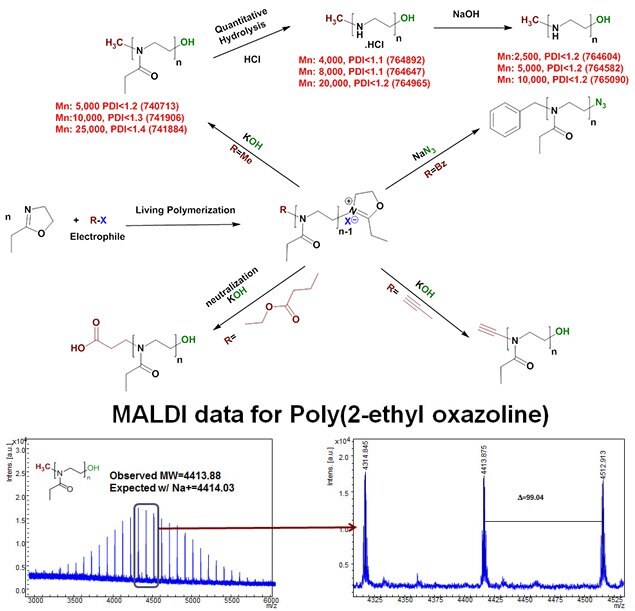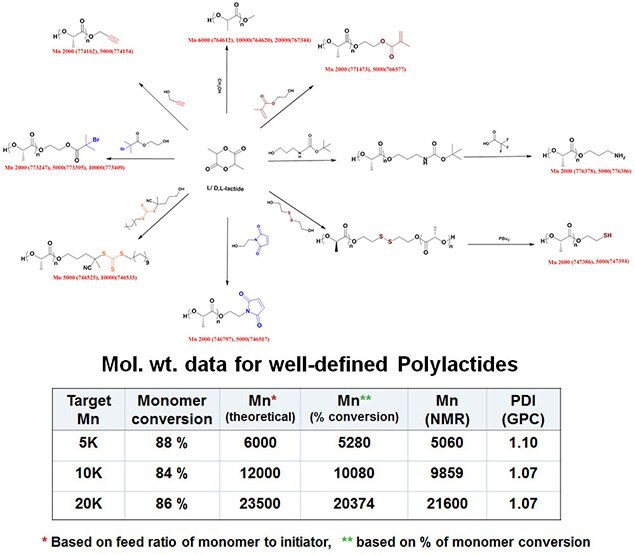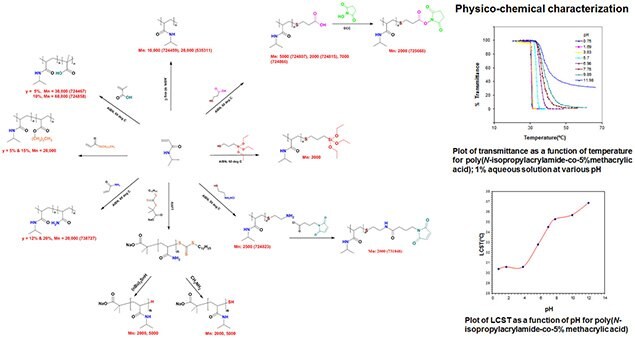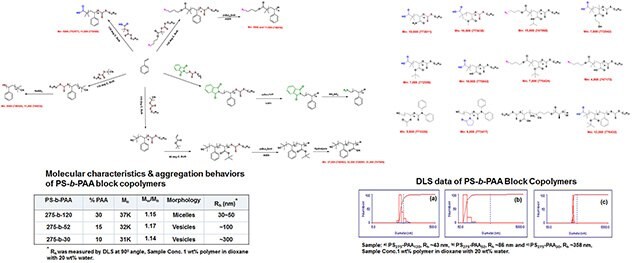Functional Polymers for Biomedical Applications
Gangadhar Panambur, Donghun Koo, Philip Dimitrov, Shahinur Rehman, Bryce Nelson, Viktor Balema
Wide range of functional polymers for biomedical applications have been synthesized and structurally characterized. Several classes of polymers including biodegradable polymers, hydrophilic & amphiphilic polymers, and stimuli responsive polymers have been prepared using controlled and directed functionalization via "living" polymerization such as RAFT, ionic and ring opening polymerization. Selected polymers have been studied for their structure-properties relationship.
Functional Polymers
Polymers represent the leading and versatile type of biomaterials being extensively applied in biomedical applications such as tissue engineering, nano-medicine, medical devices etc.
The versatility of polymers for biomedical uses is attributed to the relative ease with which polymers can be designed with a range of architecture, functionality and appropriate physical, chemical and biological properties.
Functional polymers are special class of polymers where the polymer chains contain one or more reactive groups attached at the chain end or to the backbone.
In biomedical applications, functional polymers are used as building blocks to design complex structures such as nanoparticles, bioconjugation, biocompatible surfaces, scaffolds, hydrogels etc.
Functionalized Biodegradable Polylactides
Click on image for larger view.
Polyoxazolines and Linear polyethylenimines

Functionalized Heat & pH Sensitive PNIPAM
Click on image for larger view.
Functional RAFT Polymers
Click on image for larger view.
Acknowledgements
Prof. Scott Grayson, Tulane University
Prof. Nicholas L. Abbott, University of Wisconsin
To continue reading please sign in or create an account.
Don't Have An Account?

